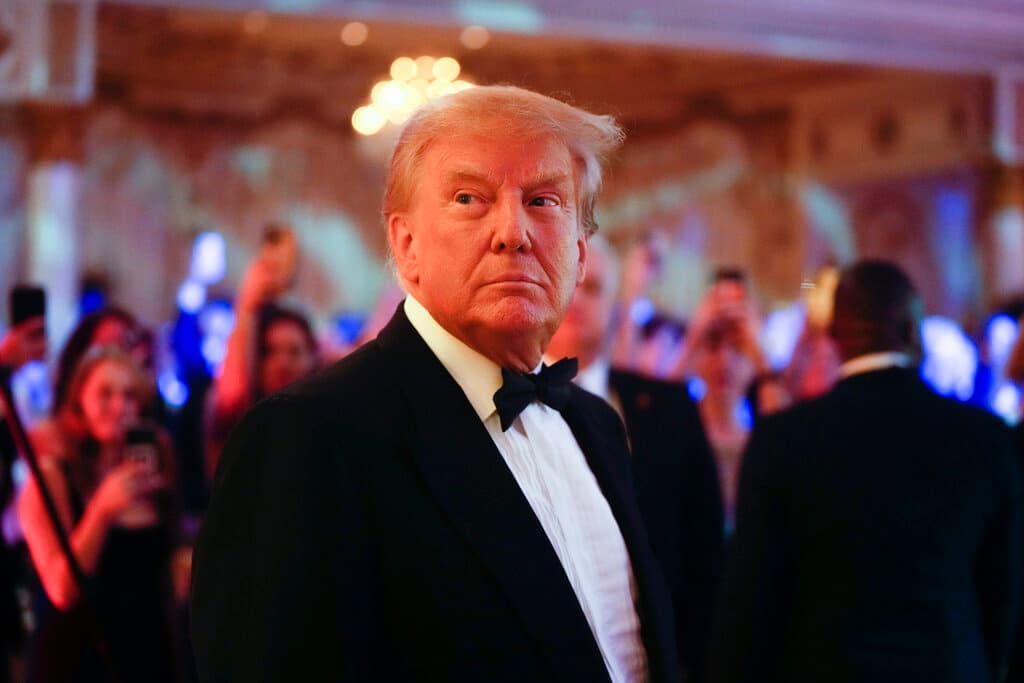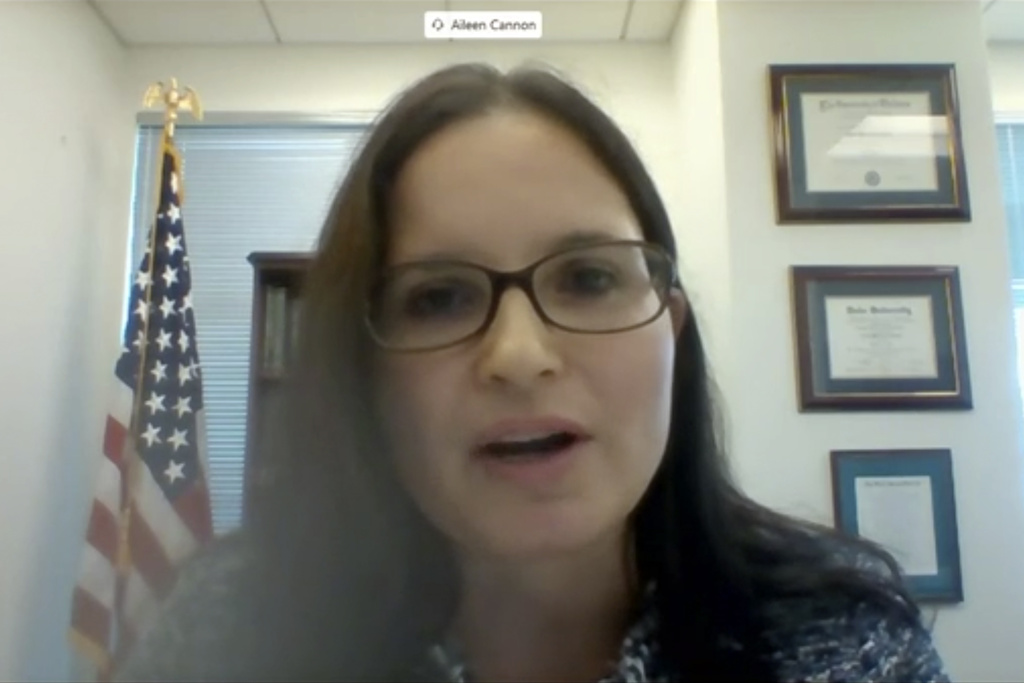Judge Cannon, Forging a ‘Parallel Legal Universe,’ Requires Removal From Jack Smith’s Case Against Trump, a New Brief Contends
The argument comes from a group which this year persuaded a state court, but not the Supreme Court, to rule that the 45th president could be disqualified from holding the office of president.

The filing of a “friend of a court brief” urging the recusal of Judge Aileen Cannon from President Trump’s Mar-a-Lago case — the most pointed such request thus far — could herald a freshly volatile phase in the stalled prosecution.
The request to the 11th United States Court of Appeals comes from a legal advocacy group called the Citizens for Responsibility and Ethics in Washington, or “CREW.” Earlier this year it persuaded the Colorado Supreme Court that Trump was disqualified from the presidency as an insurrectionist on the basis of Section Three of the 14th Amendment.
That decision was overturned by a unanimous Supreme Court, which held that the Centennial State overreached in barring the 45th president’s efforts to become the 47th. Now CREW enters the Mar-a-Lago case, asking the 11th Circuit to “order the case reassigned to another district judge on remand.”
The circuit riders are charged with reviewing whether Judge Cannon erred in dismissing charges against Trump when she found that Mr. Smith’s appointment was unconstitutional. Judge Cannon’s decision upended a case that some legal observers reckoned was the strongest of the four criminal ones arrayed against Trump.
The jurist, though, found that Attorney General Garland’s appointment of Mr. Smith was irreparably defective because it lacked any statutory authority and the special counsel did not pass through confirmation by the Senate. She also ruled that his funding violated the Constiution’s Appointments Clause.
Mr. Smith’s appeal of those rulings did not include a request that the higher court remove Judge Cannon.They have reversed her before, as when she ruled that a special master was necessary to superintend the boxes of evidence extracted from Mar-a-Lago. The riders of the 11th Circuit reckoned that the decision violated “bedrock separation-of-powers limitations” and “require radical reordering of our case law.”
The special counsel has clashed with the judge, whom Trump appointed in 2020, ever since, and she has suffered two further reversals. She was assigned to the case via a randomized lottery that dictates how cases are distributed amongst the judges of the Southern District of Florida. That is the jurisdiction where Mr. Smith successfully asked a jury to hand up charges.

Now CREW comes to decry what it calls Judge Cannon’s mishandling of a “straightforward case about a former president’s unauthorized possession of government documents.” The group ventures that a “reasonable observer could conclude that she has acted in accordance with a conviction that prosecuting a former president for retaining official documents — over 100 of which are marked classified — is an intolerable affront to his dignity.”
The brief castigates Judge Cannon for her “failure over the course of one year to move the case forward in any significant way” until Justice Clarence Thomas, in a concurrence in the immunity case of Trump v. United States, signaled that he discerned that Mr. Smith was unconstitutionally appointed. Judge Cannon’s decision finding the same came not long after Trump was decided, following a hearing in her courtroom on the disqualification issue.
CREW requests that the circuit exercise its supervisory power, which mandates that any “court of appellate jurisdiction may affirm, modify, vacate, set aside or reverse any judgment, decree, or order of a court lawfully brought before it for review, and may remand the cause and direct the entry of such appropriate judgment, decree, or order, or require such further proceedings to be had as may be just.”
The precedent of the 11th Circuit dictates a judge be removed from a case if they have “engaged in conduct that gives rise to the appearance of . . . a lack of impartiality in the mind of a reasonable member of the public.” CREW asserts as an “undeniable fact that, before administering the coup de grâce that ended the case, Judge Cannon failed to resolve numerous pretrial motions and issues, leading many to suspect—rightly or wrongly—that she hoped the case would meet its doom in a second Trump administration.”
After Judge Cannon dismissed the case, the Sun spoke to one of the legal scholars, Joshua Blackman, who successfully argued that Mr. Smith’s appointment was unconstitutional, about the possibility of a motion to remove her. He was of the opinion that such an effort would founder on the shoals of the seriousness of her nearly 100 page ruling. CREW, though, alleges that her “extraordinary rulings and sluggish case administration had provoked well-founded concerns that she might be biased against the Government’s case” and asks for her removal on remand.
The core of CREW’s case for remand is not that she was appointed by Trump, but that her views render her unable to decide the case fairly. They attribute to her the belief that “subjecting a former president to ordinary criminal procedures therefore represents an intolerable affront to his dignity” and that she “will prove unable to put aside the views that led her to take so many dramatic and unusual steps that undermined the prosecution.”
Mr. Smith has not endorsed CREW’s argument that Judge Cannon appears to be “forging a parallel legal universe for former presidents” and ought to be reassigned, but the 11th Circuit is not constrained to consider only offers the government endorses. There would be precedent for such exercise of appellate power — in 2013, the Second United States Appeals Circuit removed Judge Shira Scheindlin from stop-question-and frisk cases sua sponte, or of its own initiative.

